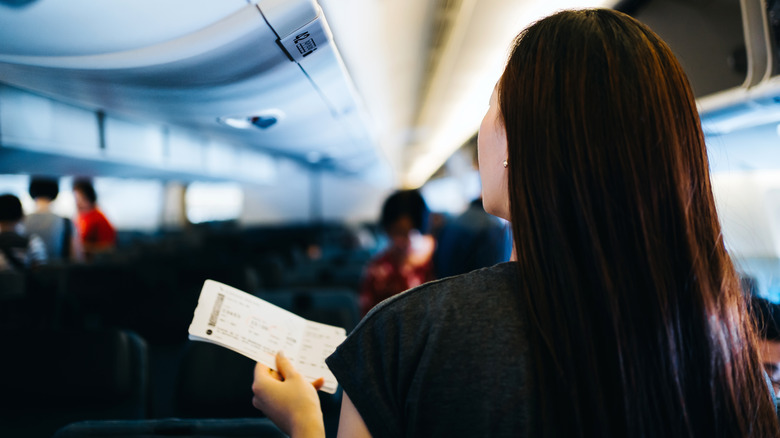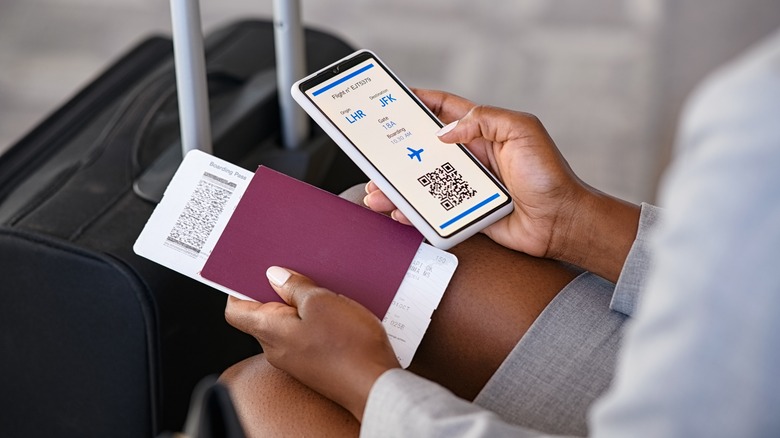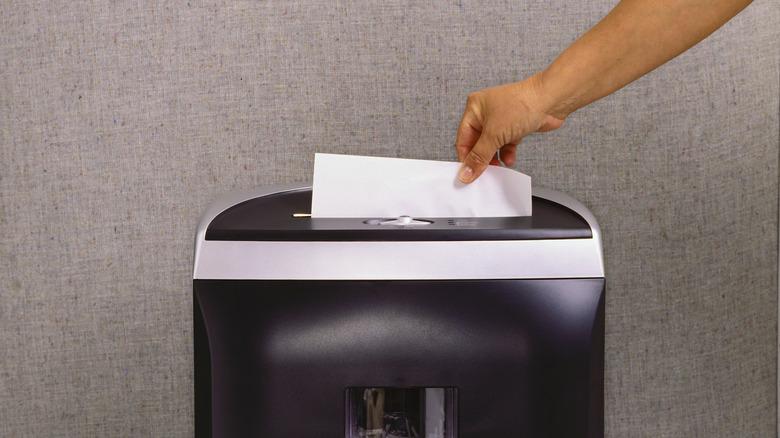Here's Why You Need To Be Careful When Getting Rid Of A Boarding Pass
After a trip to a faraway destination, you may keep a refrigerator magnet or postcard as a souvenir. But your boarding pass? Often, it ends up in the trash or even left behind in the seatback pocket on your flight. Unfortunately, leaving that little slip of paper where someone else could find it might put you and your personal information at risk.
Scammers who stumble upon your discarded boarding pass can use its information to access your private flight booking details and other data. All they need is the barcode on the pass and a scanning app. Once they scan the code, they can view personal information about you stored by the airline, including your full name, date of birth, passport number, email address, phone number, the identities of your travel companions, and any special requests made, such as in-flight meal requests for dietary restrictions.
Some of these details may seem harmless to share — after all, who cares if some stranger knows you ordered a gluten-free meal? However, hackers can use this information to change your future flight reservations, steal your hard-earned miles, or send you sneaky emails with phishing links. They could even use your information to commit identity fraud. It's for these reasons that you should also never share photos of your boarding pass online.
You may want to hang onto your boarding pass for other reasons too
When you're on a plane or at the airport and your hands are full with luggage, your phone, your passport, and other travel items, it's all too easy to ditch your used boarding pass to lighten your load. But besides exposing your personal information to fraudsters, there are a couple of other reasons you should keep your paper pass even after your trip. First, your boarding pass can come in handy when an airline loses your checked luggage. While you should be given a bag tag, your boarding pass can also help the staff locate your lost luggage in a pinch.
Your boarding pass is useful when collecting miles or rewards points after a flight. Sometimes, airlines make mistakes, and your physical flight ticket can act as proof that you were on the plane. Then, if the airline fails to credit miles for your trip, you can contact them and provide the ticket number from your boarding pass.
Finally, a boarding pass can help speed up any insurance claims you may need to make after your flight. For instance, if you fall ill during your trip and need to make an out-of-country health insurance claim, your boarding pass proves you're where you say you are. The same goes for lost or damaged belongings and other types of insurance protection.
How and when to dispose of your boarding pass
If you don't want old boarding passes piling up at the bottom of your bag, at least keep them until you return home. Then, once you're sure you don't need to keep the tickets as proof of your trip, shred them before tossing them in the trash bin. Be sure to thoroughly shred or cut up the barcode so a scammer can't easily piece it back together.
Surprisingly, you may want to do the same with any luggage tags or stickers provided to you by the airline. Like boarding passes, the codes printed on the tags of checked luggage can contain personal information that could be valuable to a hacker or identity thief. Don't forget to remove any old stickers and rip them up before placing them in the garbage.
If you're wondering if it's safer to skip the printed boarding pass and rely on a digital copy instead, the answer isn't so straightforward. A digital boarding pass can be a good option if you're prone to losing your physical one, but it can cause issues if your phone dies or if an immigration officer needs to make a photocopy, for instance. Plus, the airline apps that provide digital passes aren't always so secure either. When choosing between the two, print your pass to avoid trouble later, but treat the paper just as you would your passport or credit card until you return home.


